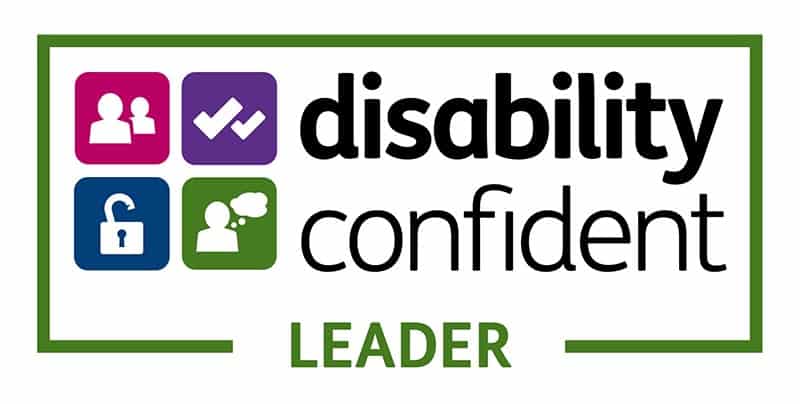There is currently a massive reorganisation in England of health and social care delivery. It is now more important than ever that Disabled people and their organisations have an influential voice at the important tables and in big decisions. Organisations like WECIL have a key role to play, both as an activist group campaigning for Disabled voices to be heard by decision makers, and as a service provider giving Disabled people access to the care and support they want and need.
Whilst some may think that Disabled People’s Organisations (DPOs) have to sit in one of these two camps, the reality is that organisations like WECIL do both. We enable choice and challenge barriers to independent living both through our work as a voice organisation and through the delivery of high-quality support and advice services which are designed by Disabled people for Disabled people.
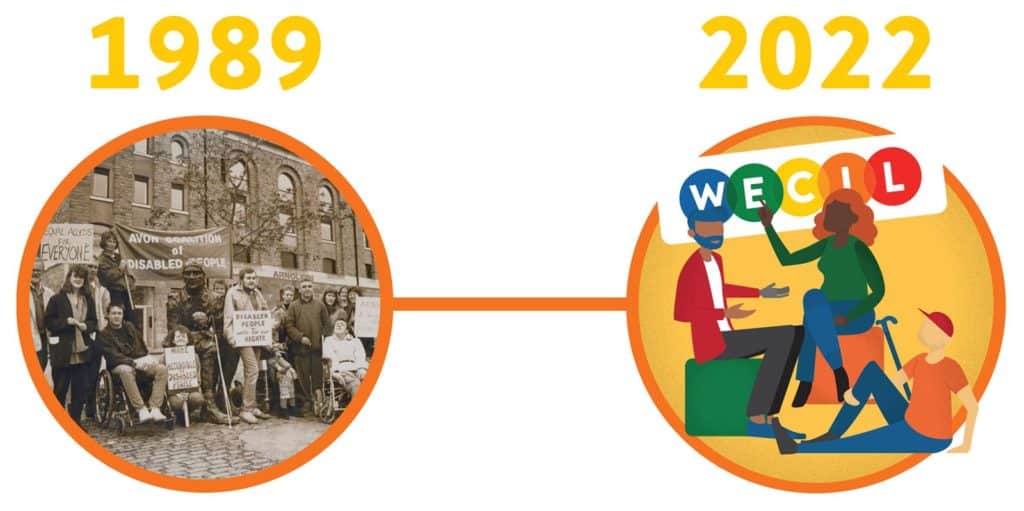
WECIL’s deep rooted history
WECIL’s origins are in campaigning and activism for Disabled people’s rights. We started life within the Avon Coalition of Disabled People (ACODP) in 1989 during a time where there were no laws to protect Disabled people from discrimination. This coalition and others across the country campaigned for Independent Living Services and Direct Payments for Disabled people to manage their own support needs instead of institutionalised support and local authorities deciding on their behalf.
The collective organisation of Disabled people was hugely successful, resulting in legislative changes which led to the establishment of the Care Act, among which was the right to self directed care. Many of the coalitions formalised into Disabled people led organisations, and ACODP was one of these which secured funding in 1994 to set up The West of England Centre for Independent Living (WECIL). Launched in 1995 by Jane Campbell, then Chair of the British Council of Disabled People and now Baroness Campbell of Surbiton, we continue to fight for Disabled people’s rights, challenge barriers and help give users choice and control over their lives.
We have been delivering some of our services since our early days, such as supporting Disabled people to use their Direct Payment to employ Personal Assistants, and other services have developed over the years; all of our work forms part of our collective voice advocating for disability equality.
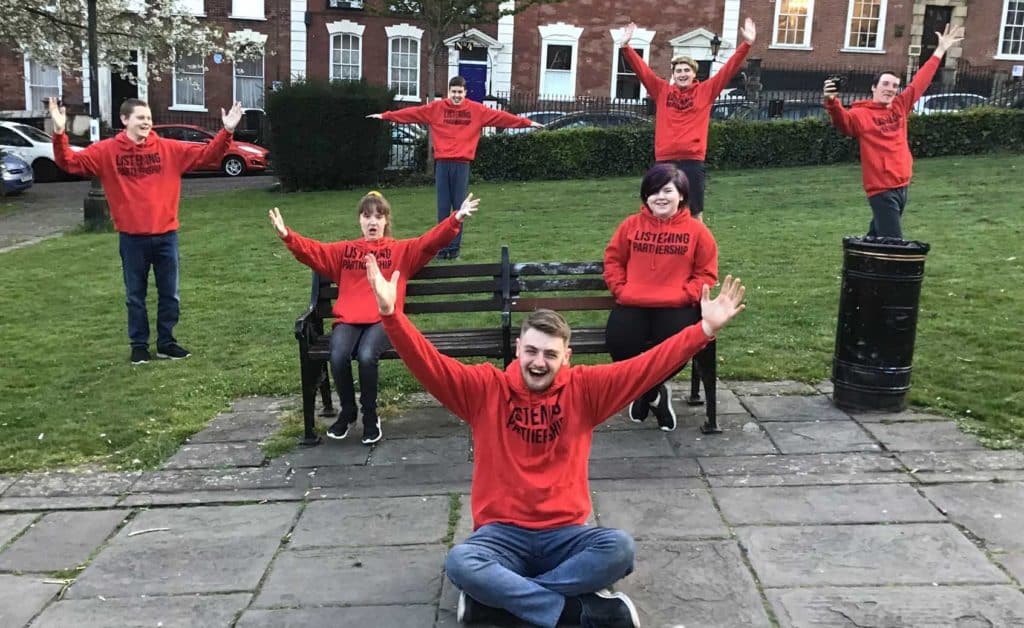
Present projects and groups
Now, WECIL still has that same mission – to support independent living and give Disabled people choice and control over their care needs. From our variety of voice and advocacy groups to our services for children and young people, businesses and the community, we are always fuelled by a drive to be a platform for change for Disabled people across the West of England and beyond.
Our Listening Partnership is an exemplary youth activism group funded specifically to provide a voice for Disabled young people, whilst our Know Your Rights group works together as a community to break down structural and social barriers faced by people who are Autistic or have learning difficulties . Through monthly peer advocacy meetings for members they use their lived experience and knowledge to campaign for change, help people learn more about their rights and upskill wider society. Disabled people can get involved in these groups to have their voice heard, participate in important decisions and make a difference both locally and nationally.
Using voice as a platform for change is also integrated into the very services we offer as an organisation; for example, Create My Support Plan is a tool whose development was guided by Disabled people, to aid self-direction in the design of their support plans and give Disabled people a strong voice to self-advocate when agreeing Care Plans with Local Authorities. Our WECIL Access and Inclusion Team (WAIT) group also conducts our access audits with Disability.Inc., incorporating what was Bristol Physical Access Chain (BPAC), a group of volunteers within the local council that was consulted on all public capital developments in Bristol; we have now come together as one to cover the whole West of England to to inform and influence the policy and practice of public and private organisations, businesses and councils across the area.
As a Disabled People’s Organisation, we are founded on and guided by clear values of independence, inclusive involvement and peer support. Our Board of Trustees, who make all key decisions about the organisation, is constitutionally required to be made up of a minimum of 75% Disabled people, we actively recruit Disabled people to our staff as we understand that their lived experience is the best qualification in delivering support to Disabled people, and co-produce service design and key decisions and changes within the organisation with our Members and users – all of whom are Disabled people. We don’t separate our services as different from our voice work; we centre direct lived experience, champion full inclusion and fight to overcome barriers for Disabled people in all that we do, right from providing opportunities for Disabled children to develop their confidence to fostering community through our Befriending service.
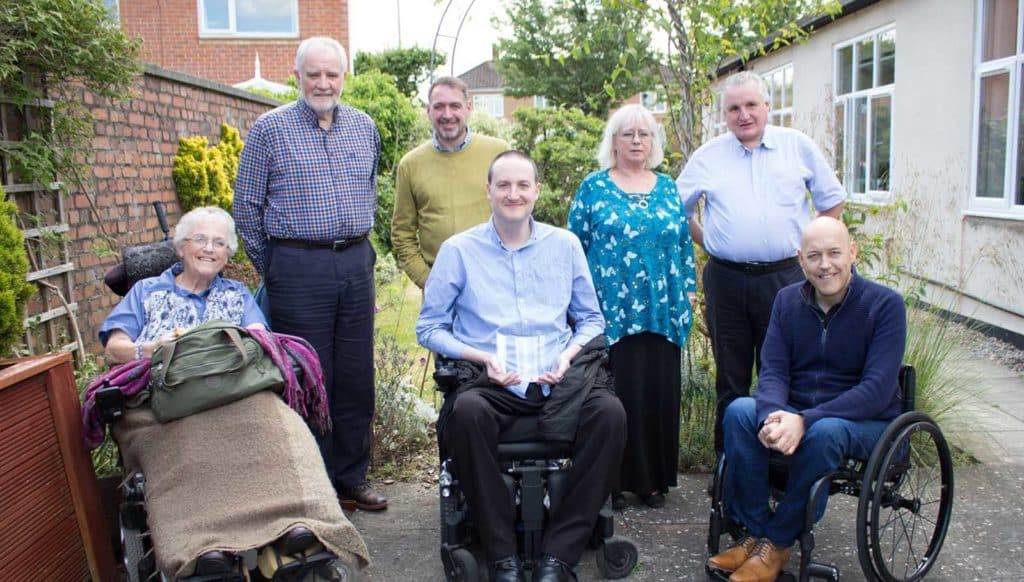
We take an active stance in bringing our knowledge and insight of Disability rights into social and political decision making. For example, I sit on the Board of the Bristol, North Somerset and South Gloucestershire Integrated Care Partnership – the governance level of the new Integrated Care System for this region bringing the NHS, Local Authorities and key delivery organisations together locally to improve health and social care and establish strategic priorities. The involvement of DPOs like WECIL means the voice of Disabled people, with their direct experience of the impact of these care systems, and the insight gained from 25 years of direct service delivery can positively influence mainstream policy making, commissioning decisions and existing service provision. We represent local Disabled people who use the health and care systems to help make care and support decisions more inclusive for all.
We are also able to challenge local authorities to improve inclusivity whilst helping Disabled people get the most out of their state funding. For example, during the pandemic the government passed Care Act easements in the COVID act; we publicly challenged Local Authorities’ enactment of these easements and fought alongside other DPO’s across the country to have the law overturned, whilst also working in close partnership with those Local Authorities to rapidly design effective new services to support Disabled people through challenges of disrupted care throughout the pandemic. It is clear through the success of both approaches that we can be a preventative voice, a service provider and partner for all.
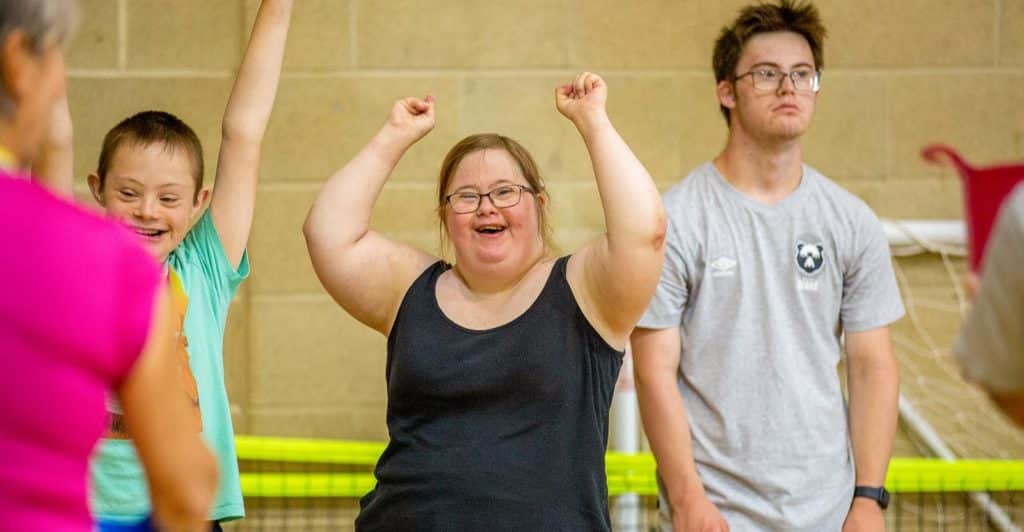
A positive future
On top of all the work that WECIL are currently doing, we realise that there is always more work to be done. We are in the midst of massive systemic change that will impact Disabled people in health and social care and it is now more important than ever that Disabled people and their lived experience are represented.
Groups like the NHS are presently waking up to the benefits of co-production and self and peer advocacy in health and social care, approaches that DPOs like WECIL have been promoting for decades. Our strategic objectives are focused on improving both our voice and service provision, always with the lived experience of Disability at the heart. We are fundraising for recruitment of a Policy and Engagement Lead to be at those tables with key decision makers and engage with the WECIL community by feeding back their knowledge on policy development, becoming a platform for rather than speaking on behalf of Disabled people. We also plan to consult regularly with Disabled people to identify service gaps and priorities for developing new support areas such as housing and health, and are working with other organisations such as Social Care Future towards new system interventions.
A 2020 report by WECIL highlighted the lack of representation at centres of change and identified the clear need to have Disabled voices heard and included. We continue to work alongside other DPO’s to affect local, regional and national change and work towards filling that void through our services, advocacy, lobbying and partnerships. By embracing co-production through centring the lived experience of disability in decision making, the outcome becomes more efficient, effective and cost effective in the long run.
Whether you’re a Disabled person who would like to have your voice heard, a Local Authority, or part of the NHS, organisations around the country like WECIL can help be that platform for positive change. Get in touch to find out more about our voice and activism and services to see how we can support independent living, together.



